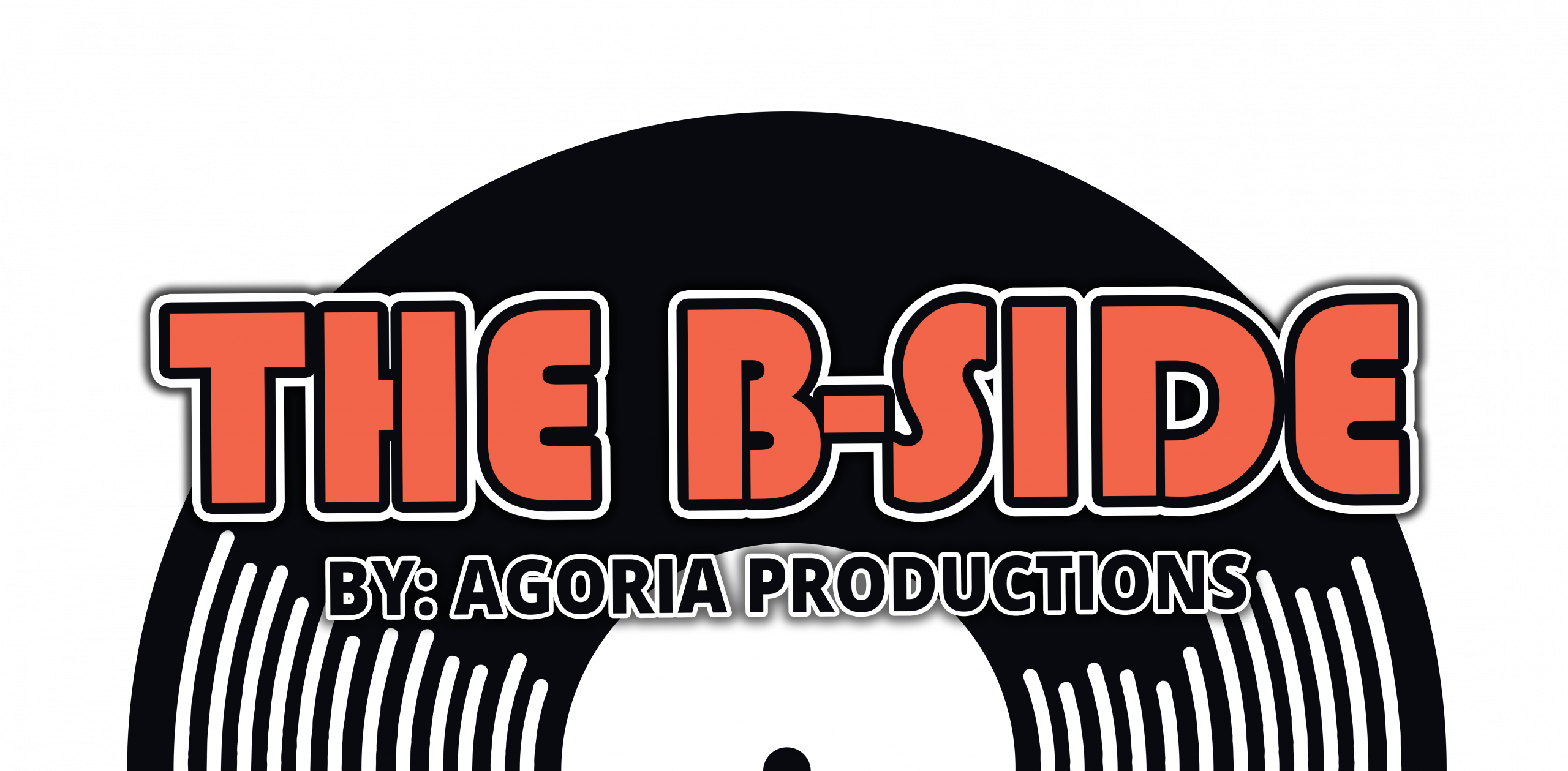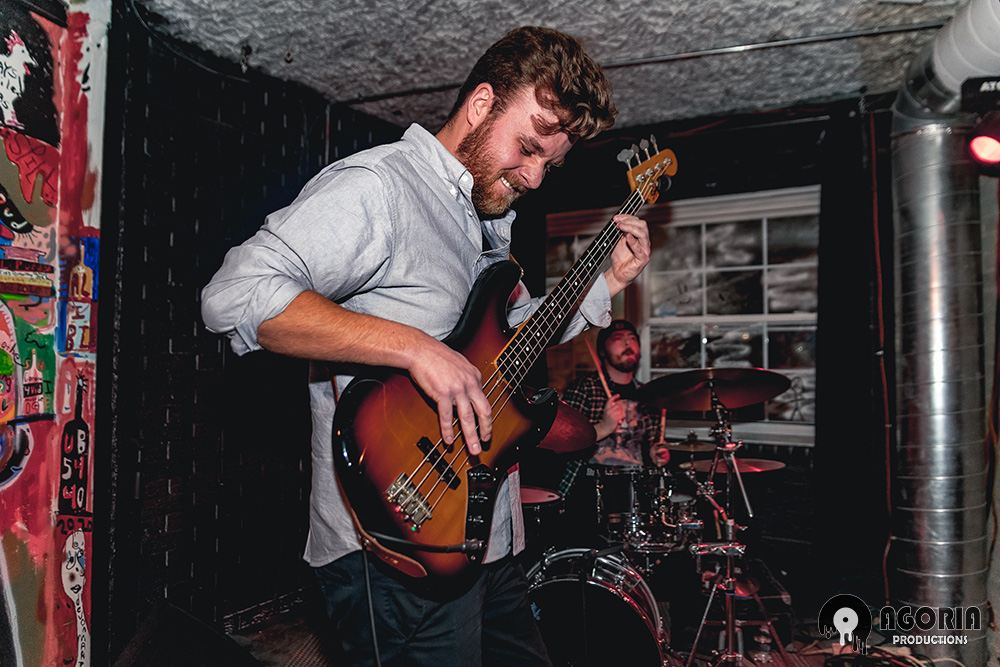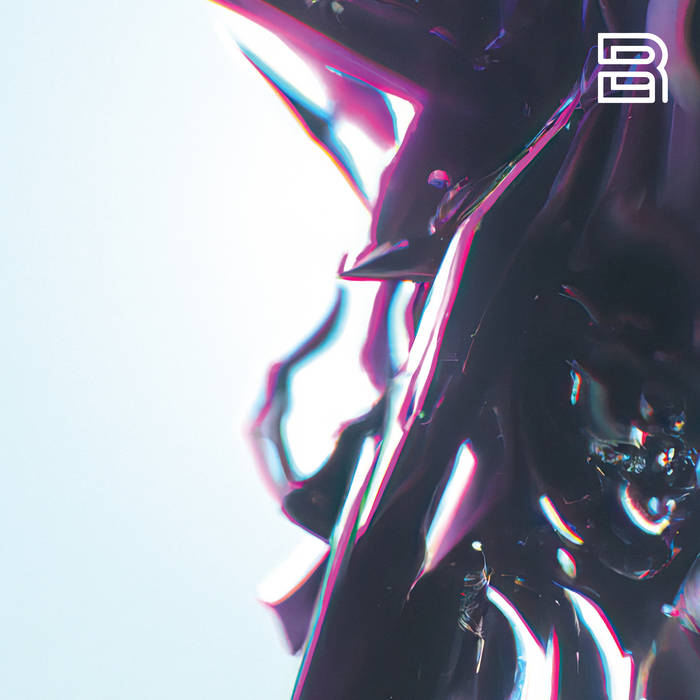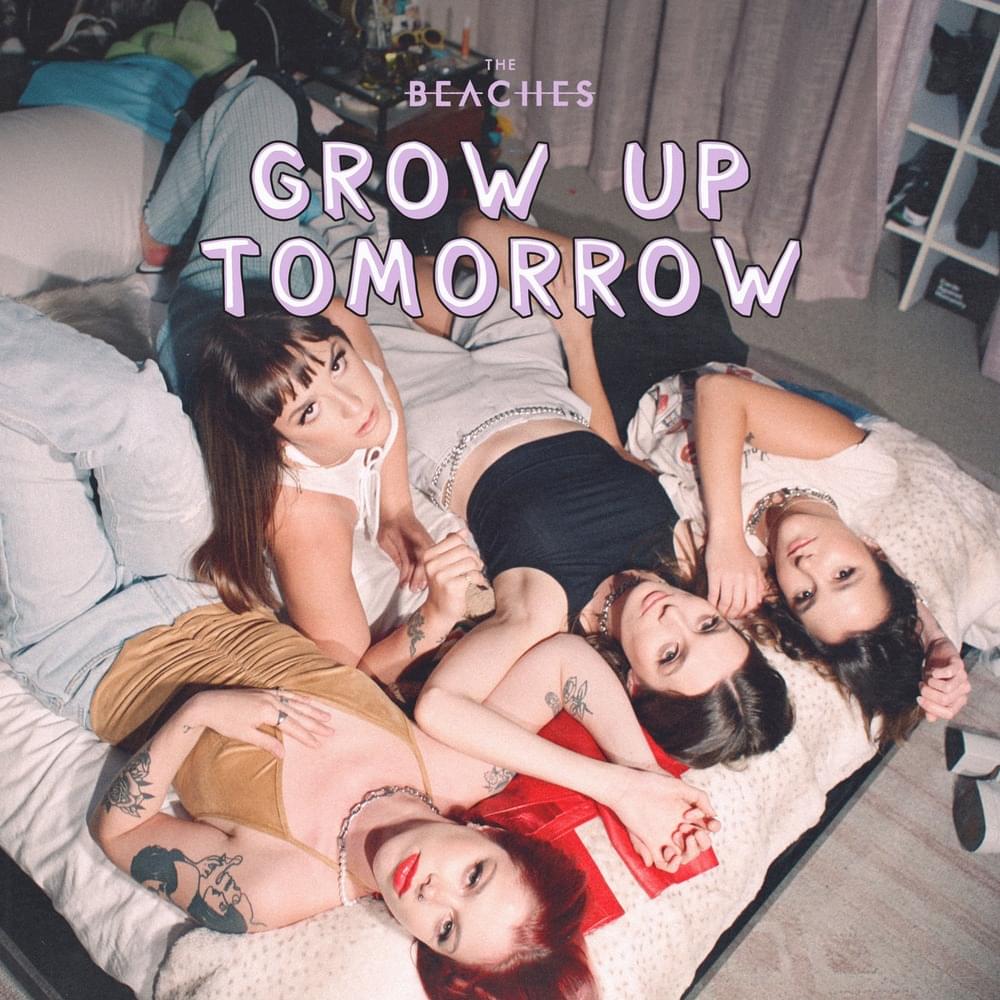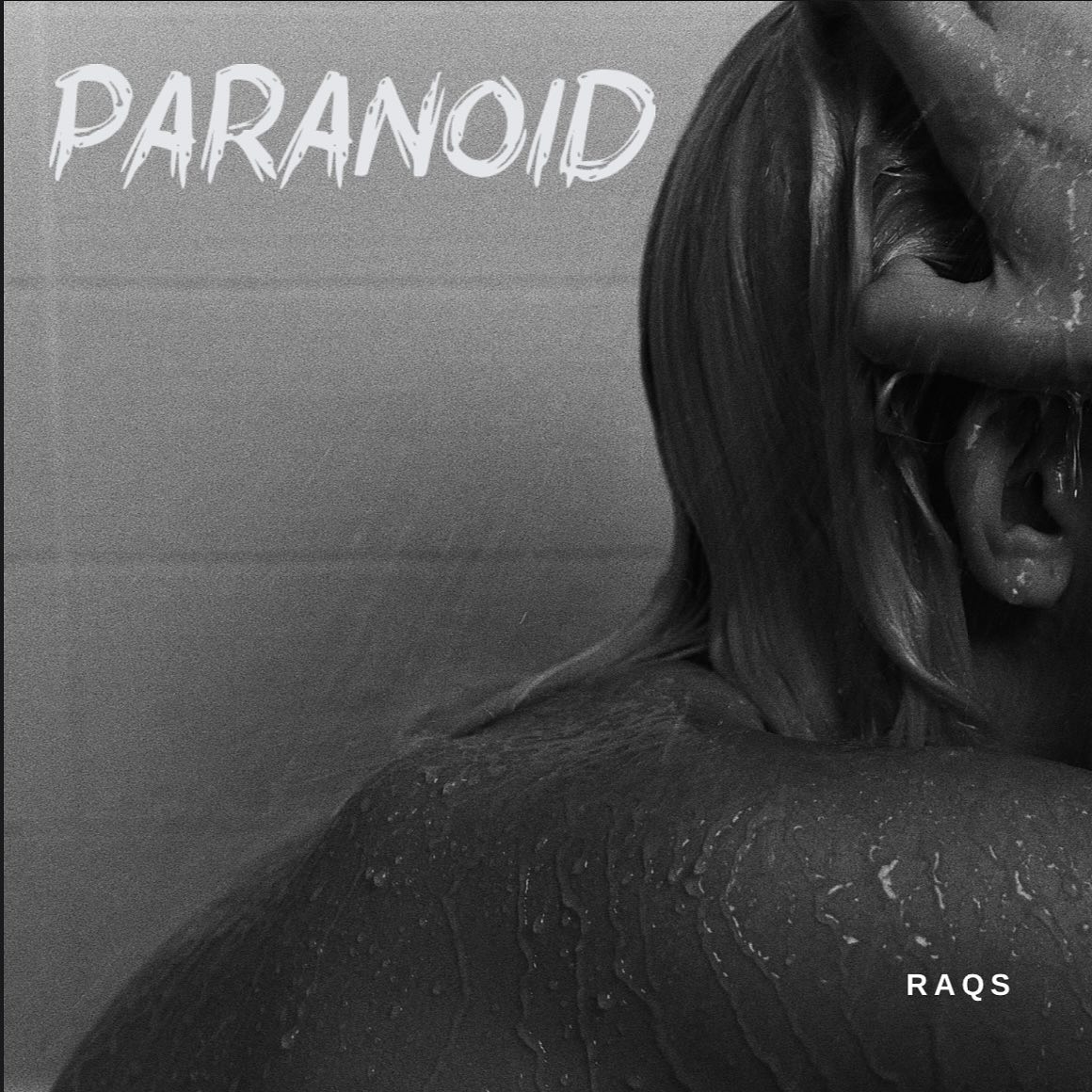The B-Side’s Q&A interview with experimental jazz band, The Mcbrown Group.
Crammed into the back corner of Tail of the Junction bar, I sit down with the Hamilton, Ontario band “The Mcbrown Group” for a brief Q&A just prior to their set. Due to their minimal social media presence, nobody quite knows what to expect, but anyone who stayed to watch is about to be blown away by the group’s innovative, progressive-rock jazz fusion sound. They manage to bring swing, soul, and depth to each of their instrumental songs; composed specifically by bassist and founding member Liam Brown to allow for the expert interpretation and improvisation on the parts of his skilled bandmates. Each member comes from a unique musical background, and their collectively diverse talent means they’re able to individually bring something to the table to heighten their music’s overall complexity. They infuse their own sense of humor into their music and performance, which makes them really fun to watch and even better to listen to. Let’s meet the band!
Q: So, Mcbrown Group, who are you? Introduce yourselves for the folks at home.
A: Liam, ‘Mcbrown’ Brown, bassist, songwriter
Tommy, drummer
Alex, saxophone
Ciaran, lead guitar
Natty, keyboardist
Q: How would you describe the genre of music you play, and your own personal sound?
A: [Liam] It’s like punk-rock, jazz fusion, or progressive-rock. There’s a lot of extra stuff in there for anybody who knows music theory, so they can go ‘oh yeah, that was cool!’
[Collectively] The overall mood of our songs is something along the lines of groovy, organized chaos, teenage angst. Our sound is angst-funk.
[Ciaran] Our sound is loud and noisy, but there’s a lot of stuff for music nerds in there too. We use a lot of oddball time signatures and different changing of chords, improvising on the spot and stuff like that, so the people who want to nerd out will totally enjoy what we’re playing. The people who don’t know what any of that technical stuff is can still enjoy our music, cause it’s loud and our sound is generally pretty interesting.
[Liam] Sometimes, we’ll start playing a song, and then by the end we’re playing an entirely different song. Nobody, including the band, knows what we’re playing. When we’re up there, we’re not so much worried about the sound, we’re worried about where count One is. Is there even a count One anymore? Guess we’ll find out.
[Tommy] We each contribute our own personal element.
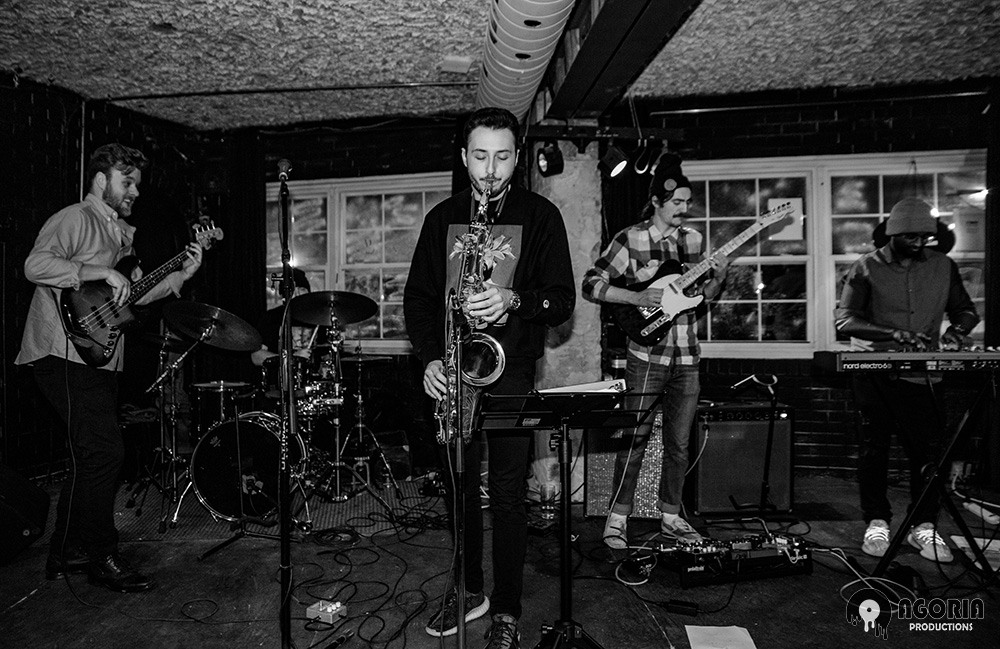
Q: How long has your group been performing live gigs?
A: [Liam] We only ever played two shows before the pandemic, and that was honestly just a funk party kind of idea. Then COVID hit, and nothing was really happening so I just decided to write a bunch of tunes. I applied to the Toronto Underground Jazz Fest, and they got back to me and said ‘you’re in’, so it was kinda like, oh shit, I need a band. These guys were the first names that popped into my head. We’ve all played together and separately, and I figured getting these guys in would make for a nice combination of musical backgrounds. So far, we’ve been solid!
Q: What are some consistent sources of inspiration behind the songs you’ve written?
A: [Liam] With one of our songs, Guillermo Del Toro, I wanted to write the A section, the verse of the song, as diatonically to the key as I possibly can, to make it sound like it’s not in key. For the chorus, or B section, it was kinda like, ‘how can I take a bunch of chords and notes and make them sound like they all belong together?’ Most of the ideas are birthed out of this kind of process.
The reason I wanted to go for more of an instrumental style is, music with lyrics almost tells you a little bit more what to feel about a song. Whereas, with instrumental music, I can personally say this song is a certain way, where Ciaran might say it’s something else, and you as the listener might see it and feel something entirely different. It’s up for interpretation.
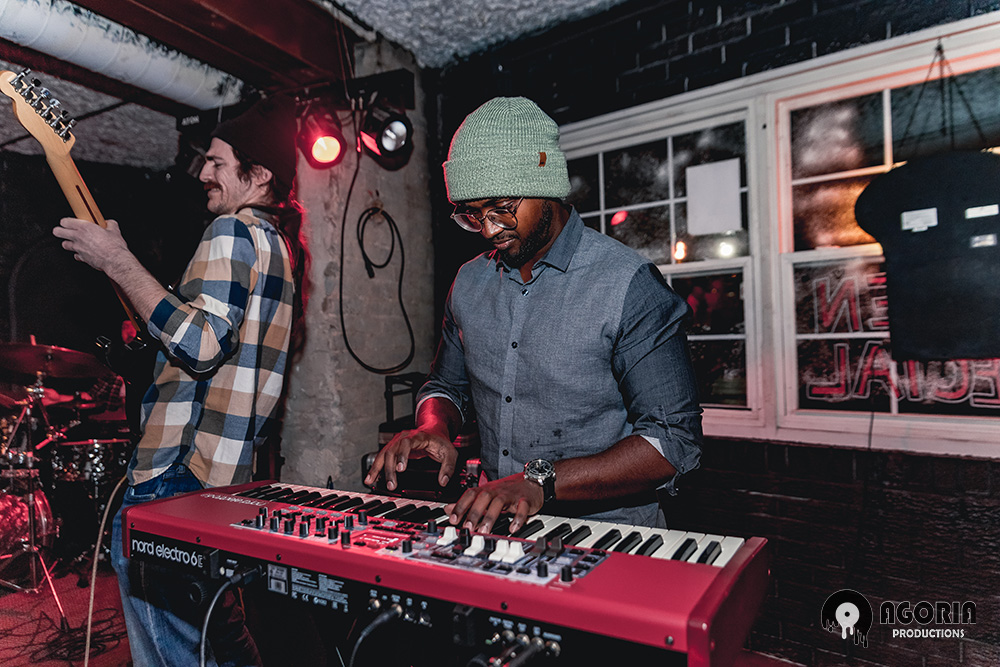
Q: Do you think the technical expertise of your bandmates helped you shape your sound?
A: [Liam] I picked these guys because I know if I throw a weird set of chords at them, they’re not really gonna ask any questions. They’ll be like ‘okay, this is what’s happening in this area of the song’. Some other musicians would need me to explain it to them since it’s tricky stuff, which I totally don’t mind doing. I’d never diminish a musician because they don’t get it, but it’s just the peace of mind of knowing I can throw anything at these guys and they can do it.
[Ciaran] Our music would definitely sound different if it were being played by other musicians. Liam writes us our own sound charts so we’ve read the notes, and he’s basically written the music for us. If he handed the charts to someone else, it’d still sound good, but different.
[Tommy] There’s also a lot of improvisational parts in our music, so switching up the instruments might mean they improvise in a different way which changes the tone.[Liam] We have these strict, rigid techniques, but i’ve also made it clear to these guys that they can feel free to f*ck around. There’s definitely a huge element of improv in our music, to the point where we get on stage and we don’t really know what’s gonna happen either. Sometimes we even surprise ourselves! We give each other permission to experiment and play around with our instruments, and that sort of gives the audience permission to respond.

Q: Who would you say are your biggest musical influences?
A:[Liam] As a bass player, it’s guys like James Jamerson, who is a classic Motown bass player, or like Victor Wooten and Kenny Wheeler. For writing, I would say The Mars Volta who are one of my favourite bands of all time, they’re like psychedelic progressive-rock. They’re very experimental, and their music is really vulnerable and human. Kenny Wheeler is a Canadian composer from St. Catherines, and his music is honestly beautiful but it’s also extremely technically complex.[Tommy] I come from a very heavy background, so I love guys like Danny Carey, Matt Halpern, Stewart Copeland and all those guys. But through school I’ve discovered artists like Ryan Blades, Lionel Lewis, Dave Weckl. There’s certain guys that I’ll borrow certain ideas from, you hear them do something, and i’ll think it’s really cool and want to interpret that myself. Other guys I take stage presence techniques from, how they look on stage makes me think about how I can look better on stage.
[Alex] I come from a classic rock background that transitioned into a jazz/funk background. I listened to a lot of Pink Floyd and Led Zeppelin, and then that moved into John Coltrane and Sonny Rollins, and then I really got into funk. My main guy I take inspiration from now is a saxophone player named Michael Brecker, who was one of the most recorded sax players of all time.I think any sax player at some point has dabbled in jazz to understand their instrument a little more in general. It took me a lot of jazz training to come to that, which transitions into the blues, which then becomes the foundation for a lot of the classic rock stuff. It all comes full circle.
[Ciaran] As far as playing goes, my biggest influence is Frank Zappa. I like the way he approaches guitar playing. It’s almost like he’s creating a sonic sculpture onstage, and he’ll just go for eight minutes, constantly changing it up. I love how he always keeps it fresh and still sounds like himself. I also love the other big guys like Jimmy Page and Jimi Hendrix, but when I was in grade eight I discovered Frank Zappa and it just blew my brains out.A couple other players would be Robert Fripp and Adrian Belew, both from King Crimson. Robert Fripp is just a technique machine, and Adrian Belew, one of his favourite things to do was see how many animal noises with just his guitar. As much as I like to play guitar solos, I also like to utilize my effects to make music so I’ll just sit on the floor and just turn a bunch of knobs, making it sound organic.
[Natty] My biggest influence is probably the OG, Chick Corea. I’ve spent a lot of time listening to his music and transcribing that, getting that rhythmic element in there and understanding his use of harmony. Him and Herbie Hancock are just fantastic. There’s also Wayne Shorter.If we dive into my roots of playing, then it’s probably all Caribbean and Latin artists, so there’s the Afro-Cuban All-Stars, Bob Marely, Baka Baka, Coffee, any of the Marley brothers. They’re all musicians who put passion and soul into their own technique.
Q: Bit of a morbid follow up question, if you could bring back one musician from beyond the grave… who would it be and why?
A: [Natty] Chick Corea!
[Liam] Definitely Chick Corea. He was a piano player who died around this time last year.
[Tommy, Ciaran, Alex] Neil Peart, John Bonham, Jimi Hendrix, Coltrane, Kurt Cobain, Shannon Hoon from Blind Melon, Bradley Nowell from Sublime, who died before Sublime really got famous.
[Liam] We kind of grew up with 90’s rock, so as you can see it’s definitely had a substantial impact on us.

Q: What has your personal experience been while performing your music to a live audience during a pandemic?
A: [Ciaran] Every time we’ve played a show so far, people have loved it. The shows I’ve been to, everyone’s wearing a mask, but the room is packed and people are thrashing around and throwing people on the floor. They’re definitely still having a good time.
[Liam] Especially with instrumental music, it’s such a personal experience. Seeing how important music is to people, culturally and individually, there’s no doubt in my mind that people want to be here experiencing this. Everyone’s been locked down for the past two years, and now people wanna relax and let loose. People want to go out and have fun with us.
Q: What’re you most looking forward to as a band as COVID restrictions begin to ease up?
A: [Collectively] More gigs! Give us more gigs! We want everyone to come out and hear us!
Q: Why do you think a new audience should check out your music?
A: [Liam] A. because It’s f*cking sick!, but B., because it’s new and it’s vulnerable. Sometimes we’ll look at each other on stage after messing around and realize something didn’t work at all, and we share that openly with our audience. I think our openness and vulnerability is something you don’t see a lot in the scene, and that’s why people will gravitate towards it, and they’ll appreciate that we take risks.
[Ciaran] We don’t act like we are the entertainers and you are the people, we laugh on stage. We are also hanging out and having fun up there, we just happen to also play instruments.
[Tommy] If you see us laughing on stage, which happens all the time, it’s for one of two reasons. Either one of us f*cked up, or one of us did something super nerdy and technical, and we’re all just impressed.
Jess Bertan for The B-Side.
